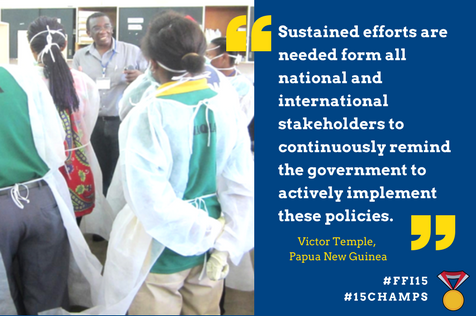#FFI15: Victor Temple
Professor of Biochemistry in Papua New Guinea (PNG)
FFI: What inspired you to become involved with food fortification?
Temple: Over 30 years of research on maternal and child health from resource limited countries deepened my understanding of the “Hidden Hunger” concept. Fortification of appropriate food vehicles that are commonly available and affordable is one of the most cost-effective, efficient and sustainable public health strategies for the prevention, control and elimination of Hidden Hunger.
FFI: What are the main components to a successful fortification program where you live?
Temple: Selection of the appropriate vehicle for fortification (flour, sugar, oil, rice and salt); effective monitoring of the fortified products at the ports (if imported; most of these products are imported into PNG) and stores; ensuring availability at affordable price to the majority of the population; effective awareness campaigns to educate the population on the need of consuming fortified food.
FFI: Is there anything else you would like to share?
Temple: Food fortification is a strategy that the PNG government has accepted to improve the nutritional status of the population. The commitment of the government is clearly stated in the PNG National Health Plan (2011 – 2020) and Vision 2050: Consumption . These programs emphasize that adequate and safe nutritious meals is the best form of preventive medicine to obtain good health for the community. It is needed to improve the health and lives of all Papua New Guineans, in order to become a “Smart, Wise, Fair, Healthy and Happy Society.” However, sustained efforts are needed from all national and international stakeholders to continuously remind the government authorities to actively implement these policies.

